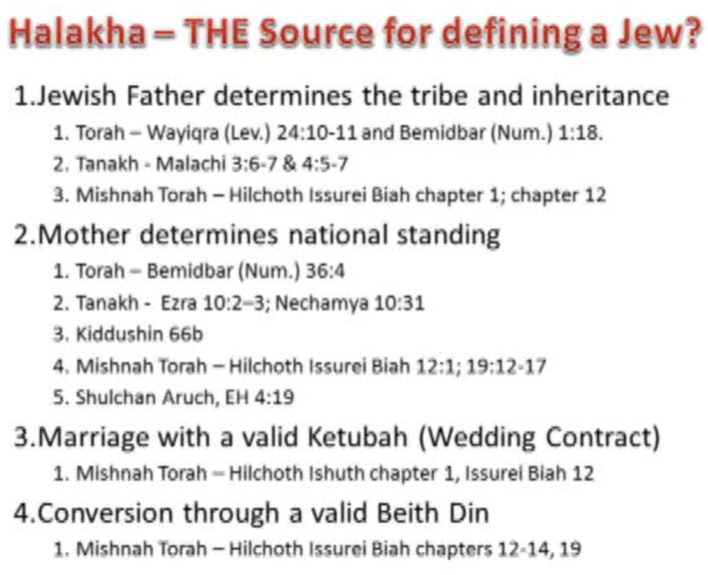Ehav4Ever
Well-Known Member
Recently, a challenge has been made about whether or not it is possible to identify who is really a Jew. The reality is that among Torath Mosheh and Orthodox Jews there has never been a problem in identifying who is a Jew. The reason is very simply. The definition of such was first provided by Hashem in the Torah.
Since, "Doing the will of Hashem in the way that Hashem instructed it" is the focuse of All Torath Mosheh communities thoughout history. It is by this principle that one can know when actions that someone takes is correct or based on falsehood. If your family member grew up in a Torath Mosheh household where this was the focus of how they managed their lives then he would be Jewish because he grew up with Torath Mosheh parents (mother and father), in a a Torath Mosheh extended family, and in closed off Torath Mosheh Jewish community dedicated himself to "Doing the will of Hashem in the way that Hashem instructed it."
The breakdown of how Torath Mosheh and Orthodox Jews have defined who is a Jew for the last several thousand years can be summerized by the following sources.

Since, "Doing the will of Hashem in the way that Hashem instructed it" is the focuse of All Torath Mosheh communities thoughout history. It is by this principle that one can know when actions that someone takes is correct or based on falsehood. If your family member grew up in a Torath Mosheh household where this was the focus of how they managed their lives then he would be Jewish because he grew up with Torath Mosheh parents (mother and father), in a a Torath Mosheh extended family, and in closed off Torath Mosheh Jewish community dedicated himself to "Doing the will of Hashem in the way that Hashem instructed it."
The breakdown of how Torath Mosheh and Orthodox Jews have defined who is a Jew for the last several thousand years can be summerized by the following sources.

